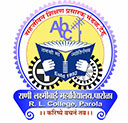
Student Charter
Every stakeholder of higher education has a role to play for quality enhancement and sustenance. The stakeholders such as the Government, management, teachers, students and the external quality assurance agencies—have an important role in ensuring quality of higher education. The National Assessment and Accreditation Council (NAAC) strive to play a catalytic role in synergizing the stakeholder’s efforts.
Of all the stakeholders mentioned above, the students have a unique role to play in ensuring quality of higher education institutions (HEIs). Firstly, the students should realize that they have the right for quality education and it is the responsibility of the HEIs to provide quality educational experience to learners. Secondly, the students should equally be aware of their responsibilities which in turn will help the institutions to provide quality education. This means that the students should demand quality education and demonstrate their commitment to quality education by accepting their responsibilities. Otherwise the HEIs will have very little motivation for quality enhancement.
An initiation has been made by the National Assessment and Accreditation Council (NAAC) in this direction by developing a sample student charter for all higher education institutions. It is hoped that the charter will help educational institutions to articulate their obligations to learners in clear terms and can be used as a benchmark for institution’s accountability to learners. The NAAC advocates the public display of student charter in every institution as an act of promotion of student participation in Quality Assurance.
Institution’s Responsibilities Towards Students
The institution shall-
- communicate its goals and objectives systematically and clearly to all students
- offer programmes that are consistent with its goals and objectives
- offer a wide range of programmes with adequate academic flexibility
- obtain feedback from students on the initiation, review and redesign of programmes if and when necessary
- facilitate effective running of the teaching-learning programmes
- implement a well-conceived plan for monitoring student progress continuously
- ensure that the student assessment mechanism is reliable and valid
- provide clear information to students about admission and completion requirements for all programmes, the fee structure and refund policies, financial aid and student support services
- ensure sufficient and well-run support services to all students
- promote healthy practices
Student’s Responsibilities of Learning
The student shall-
- appreciate the institutional goals and objectives and contribute to the realization of the same by participating in relevant institutional activities
- have a clear knowledge of the programmes, admission policies, rules and regulations of the institution
- follow the time schedules, rules and regulations of the institution
- undertake regular and intense study of learning materials
- make optimum use of the learning resources and other support services available in the institution
- prepare for continuous internal assessment and term-end examinations
- give feedback for system improvement
- have faith and ability to pursue lifelong learning
- live as worthy alumni of the institution

